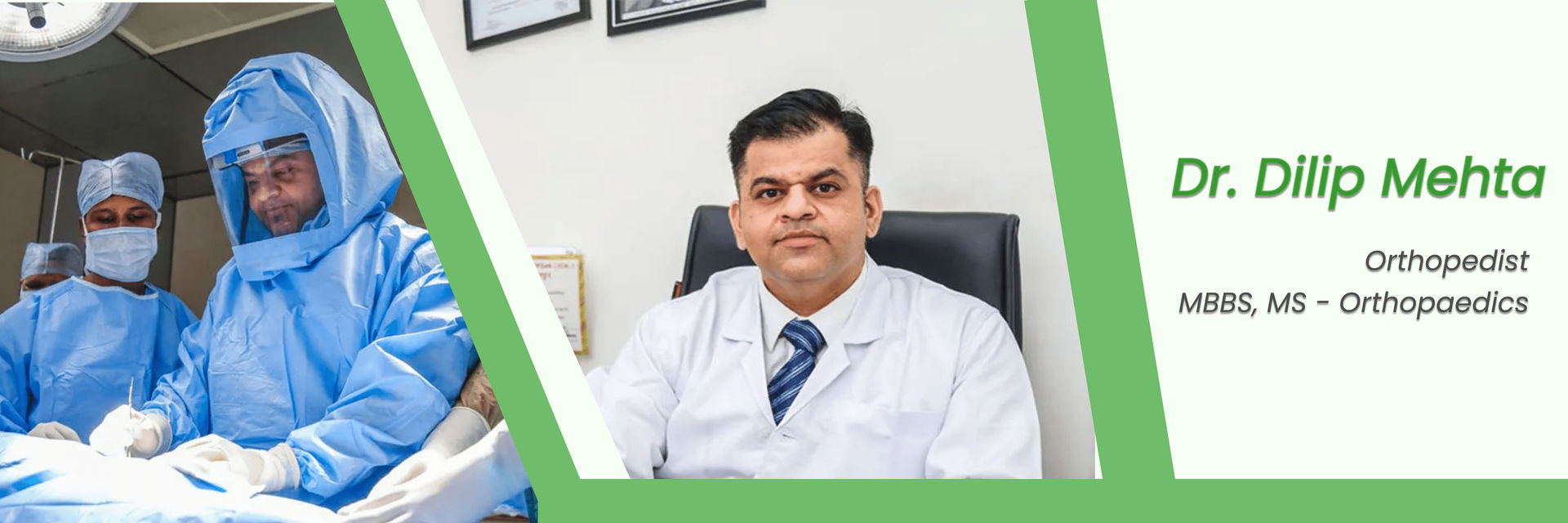Knee injuries are a significant concern, where an increasing number of individuals, particularly athletes and older adults, undergo meniscus surgery. The meniscus is a C-shaped cartilage in the knee that cushions and stabilizes the joint, but it can tear due to injury or degeneration. Meniscus surgery is often recommended to repair or remove the damaged tissue, allowing patients to regain mobility and reduce pain.
In India, knee-related issues are prevalent, with nearly 1 in 5 individuals over the age of 50 suffering from some form of knee pain, often related to osteoarthritis or meniscus injuries. According to a 2022 study, over 200,000 knee surgeries are performed annually in India, with a significant portion related to meniscus injuries. Knee swelling after surgery may indicate underlying issues, including improper rehabilitation, infection, or a new injury. With the rising number of knee surgeries, understanding post-surgery complications like swelling becomes crucial. This article on knee swelling 3 months after meniscus surgery delves into the reasons behind persistent knee swelling months after surgery, the science behind it, and the potential long-term problems after meniscus surgery.
How Long Does It Take for Swelling to Go Down After Torn Meniscus Surgery?
Swelling is a common response after any surgery, including meniscus surgery. Immediately after the surgery, the body directs fluids to the injured area as part of the healing process. Typically, the initial swelling decreases within 2-3 weeks post-surgery. However, some patients continue to experience knee swelling 3 months after meniscus surgery.
The prolonged swelling may be due to several factors:
- Incomplete Healing: The surgical site may not have fully healed, especially if post-operative care was inadequate or the patient resumed physical activities too soon.
- Inflammation: Chronic inflammation due to an autoimmune response or joint irritation may prolong swelling.
- Fluid Retention: Synovial fluid accumulation in the joint, known as an effusion, can also cause persistent swelling.
Did you know?
Diagnosing the Cause of Knee Swelling
Clinical Examination
A thorough clinical examination by a healthcare professional is the first step in diagnosing the cause of knee swelling. The examination will typically include a review of the patient’s medical history, a physical assessment of the knee, and an evaluation of the patient’s rehabilitation progress.
Imaging Tests
- X-rays: To rule out fractures or other bone-related issues.
- MRI: To assess soft tissue, including the meniscus, ligaments, and cartilage.
- Ultrasound: To detect fluid accumulation in the knee joint.
Laboratory Tests
Blood tests may be conducted to check for signs of infection or inflammation. In cases of suspected infection, the fluid from the knee may be aspirated and analyzed.
Treatment Options for Knee Swelling 3 Months After Meniscus Surgery
1. Physical Therapy: Continued physical therapy is often recommended to address swelling. Therapy may include exercises to strengthen the knee, improve flexibility, and enhance circulation, reducing inflammation and swelling.
2. Medications: Non-steroidal anti-inflammatory drugs (NSAIDs) such as ibuprofen or naproxen can help reduce inflammation and alleviate pain. In some cases, corticosteroid injections may be administered to reduce severe swelling.
3. Rest and Ice Therapy: Resting the knee and applying ice packs several times a day can help reduce swelling. Elevating the leg while resting can also help reduce fluid accumulation.
4. Compression: Wearing a knee brace or compression bandage can help manage swelling by improving blood flow and preventing fluid buildup.
5. Surgical Intervention: In rare cases where other treatments are ineffective, surgical intervention may be required to remove scar tissue, drain excess fluid, or address complications such as infection.
Prevention of Knee Swelling After Meniscus Surgery
1. Adhering to Rehabilitation Protocols: Strict adherence to the prescribed rehabilitation program is essential for preventing complications such as swelling. Patients should work closely with their physical therapist to ensure they progress appropriately.
2. Gradual Return to Activity: Patients should gradually return to regular activities, avoiding high-impact sports and heavy lifting until the knee fully recovers. This helps prevent re-injury and excessive strain on the knee.
3. Regular Follow-Up Appointments: Regular follow-up appointments with the surgeon or orthopedic specialist are important for monitoring the knee's healing process and catching any potential issues early.
4. Proper Nutrition: Eating a balanced diet that includes anti-inflammatory foods such as leafy greens, nuts, fatty fish, and fruits can aid in reducing inflammation and supporting recovery.
What Are the Symptoms of a Failed Meniscus Surgery?
While meniscus surgery is generally successful, in some cases, patients may experience symptoms indicating that the surgery did not achieve its intended results. Recognizing these symptoms early can help in addressing the issues before they worsen.
Common Symptoms of a Failed Meniscus Surgery:
- Persistent Pain: Stabbing pain after meniscus surgery, particularly during movement, can indicate that the meniscus has not healed properly or that there is ongoing irritation in the knee joint.
- Continued Swelling: If the swelling persists beyond three months, it could suggest complications such as incomplete healing, infection, or a reaction to the surgical materials used.
- Limited Range of Motion: Difficulty fully bending or straightening the knee indicates that the surgery might not have effectively restored its function.
- Locking or Catching: If the knee continues to lock or catch during movement, it may indicate that the meniscus tear was not adequately repaired.
When Will My Knee Feel Normal After Meniscus Surgery?
The timeline for recovery from meniscus surgery can vary significantly depending on several factors, including the extent of the tear, the type of surgery performed, and the patient’s adherence to rehabilitation protocols. Most patients can expect to return to normal activities within 3 to 6 months, but it's essential to note that the knee might not feel entirely "normal" for up to a year.
| Recovery Stage | Timeline Post-Surgery | Activities |
| Initial Recovery | 0-2 Weeks | Pain and swelling reduction, limited movement |
| Mobility Restoration | 2-6 Weeks | Range of motion exercises, light weight-bearing |
| Strength Building | 6-12 Weeks | Strengthening exercises, increased mobility |
| Resuming Activities | 3-6 Months | Return to most daily activities |
| Full Recovery | 6-12 Months | Gradual decrease in residual stiffness or discomfort |
Are there any Long-Term Problems After Meniscus Surgery?
While meniscus surgery is effective for many, some patients may face long-term complications. Understanding these potential issues can help manage expectations and seek appropriate interventions when necessary.
Common Long-Term Issues:
- Chronic Knee Pain: Some patients may experience knee pain 1 year after meniscus surgery, which could be due to arthritis, scar tissue, or an incomplete meniscus repair.
- Reduced Knee Stability: Removing or trimming the meniscus can decrease the stability of the knee joint, making it more susceptible to future injuries.
- Development of Osteoarthritis: The meniscus plays a crucial role in protecting the cartilage in the knee joint. Without a fully functional meniscus, the risk of developing osteoarthritis increases over time.
FAQs
1. Why is my knee still swollen 3 months after meniscus surgery?
Persistent swelling three months after surgery may be due to incomplete healing, fluid retention, or ongoing inflammation. If the swelling persists, consult your doctor to rule out any complications.
2. Why is my knee still swollen 4 months after surgery?
If the swelling continues beyond four months, it could indicate a more severe issue, such as infection, scar tissue formation, or improper healing. It is recommended that you follow up with your healthcare provider.
3. How to sleep after meniscus surgery?
Sleeping with your knee elevated on pillows can help reduce swelling. It's also advised to sleep on your back or side to avoid putting pressure on the knee.
4. What can I do to reduce knee swelling after meniscus surgery?
Rest, ice therapy, compression, and elevation effectively reduce swelling. Continuing with physical therapy and taking anti-inflammatory medications can also help.
5. When should I be concerned about knee swelling after surgery?
You should be concerned if the swelling is accompanied by severe pain, redness, or fever or persists despite treatment. These could be signs of an infection or other complications.
6. Can knee swelling after meniscus surgery cause long-term damage?
If left untreated, prolonged swelling can lead to stiffness, reduced range of motion, and other complications that may affect the knee's long-term function.






